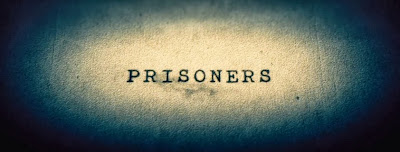Prisoners - an evocative and engrossing film
Hollywood's penchant for making blockbusters and the subsequent and gregarious usage of quick cuts and one liners comes at the cost of a quality of films, and indeed art in general - that of invoking pensive contemplation.
Directed by Denis Villeneuve (Incendies) and starring Hugh Jackman and Jake Gyllenhaal (in Oscar nomination-worthy roles), Prisoners is a film that, with its intensely still and evocatively silent opening shots, establishes itself to be very much going against the grain of generic Hollywood outputs and at the same time succeeds in gripping the audience's attention with minimal flirtatiousness.
Set in rural America, two families, the Dovers (Hugh Jackman) and their neighbours the Birches celebrate thanksgiving together at the Birches' house. As these family parties go, the older teenage children watched t.v. in another room whilst the grownups drank and chatted. Their two youngest daughters, Anna Dover and Joy Birch, eventually got bored and were allowed to go to the Dovers' house to play. Later, when they didn't return and couldn't be found anywhere, the police was called and inspector Loki (Gyllenhaal, not the Norse god of mischief), begins investigating.
The older children recalled the girls playing and clambering on a dilapidated RV before they disappeared. The RV was found and, trying and failing to escape police, the driver, a classic nutter-looking individual, was arrested and questioned by Loki. Finding that he has the intelligence of a 10 year old and unable to find any traces of the girls ever been in the RV, police were forced to let the man, Alex, go. Convinced that Alex is the abductor and disgusted with the police for not keeping him under lock and key, Keller Dover decides to take things in his own hands in pursuit of saving the girls. This begins the dance of intrigue between him, his family, the Birches, Loki and the suspect.
The film divides between the efforts of Keller Dover and Loki - two very different men using different methods in attempt to arrive at the same end. This way, it gives the audience perspectives from both sides. One of the father, who, a strict, Christian, righteous and self-sufficient man, an almost idealistic American-type, torn asunder with the double-laceration of fear for his daughter and the guilt for not fulfilling his role of protector, finds himself willing to go beyond the line in the sand dictated by his religion and creed. And secondly Loki, a intriguingly withdrawn and captivating character who has to deal with both the urgency of finding the girls whilst remaining calm and objective and working within the ambient of the law, and trying to gain the trust and help from the grieving, accusing, and occasionally aggressive family members.
Jackman is very convincing as the good family man but rises above himself when Dover becomes the relentless and ruthless father in search of his daughter whilst dealing with his conscience. The verisimilitude achieved of the characters and the realistic tone of the film adds to the intensity and gravity of the classic situation of when a good man's black and white ethics and moral values are tested by extreme circumstances and rendered shades of gray, highlighting many moral dilemmas and makes the audience ask the question 'what would I do if I were in his place?'. The emotional force and primal energies he channels eclipses his Wolverine performances.
Loki's character is introverted and withdrawn but succeeds in drawing in the audience to him. The tattoos contrast with his soft-spoken voice and easy composure, which in turn contrasts with his intuitive, very competent and slightly maverick style of working. No background is given other than these, which hints at a checkered past. His cloistered and solitary nature gives Loki a slightly mysterious light. His increasing frustration and hence his compassion for the girls leaks out in small bursts and finally erupts at a point when he thought the girls were lost through his mistake, a mistake made in a rare moment of emotional outburst.
The major over-arching question posed by the film is: do extreme circumstances excuses extreme measures? It's certainly hard to think of a more pressing situation than losing ones children to a possible sociopath or sexual predator. How much does this justify in this case? The immediate analogy is the ticking bomb scenario in the world faced with international terrorism. Do we condone torture? Mass surveillance? How much freedom do we give up in exchange for security? How much like the enemy do we need to become to be able to combat them? These questions are certainly worth contemplating. I have my own views on many of these but this film brings them into sharp focus by colouring it with deep emotional depth, shaking one's positions made whilst in relatively sober and objective frame of mind, questioning one's integrity and commitment to the values one holds and makes you ask of yourself 'what would I do?'.
As a mystery, I must confess to finding the resolve somewhat underwhelming. Being a fan of mysteries, I was hoping for the resolution, the prestidigitation to be somewhat more convoluted or dramatic. Especially in the light of certain developments and red herrings. However, if you are hoping to rise above The Fast and the Furious N or some such cinematic LSD, you'd not do badly in seeing this film.





Comments
Post a Comment